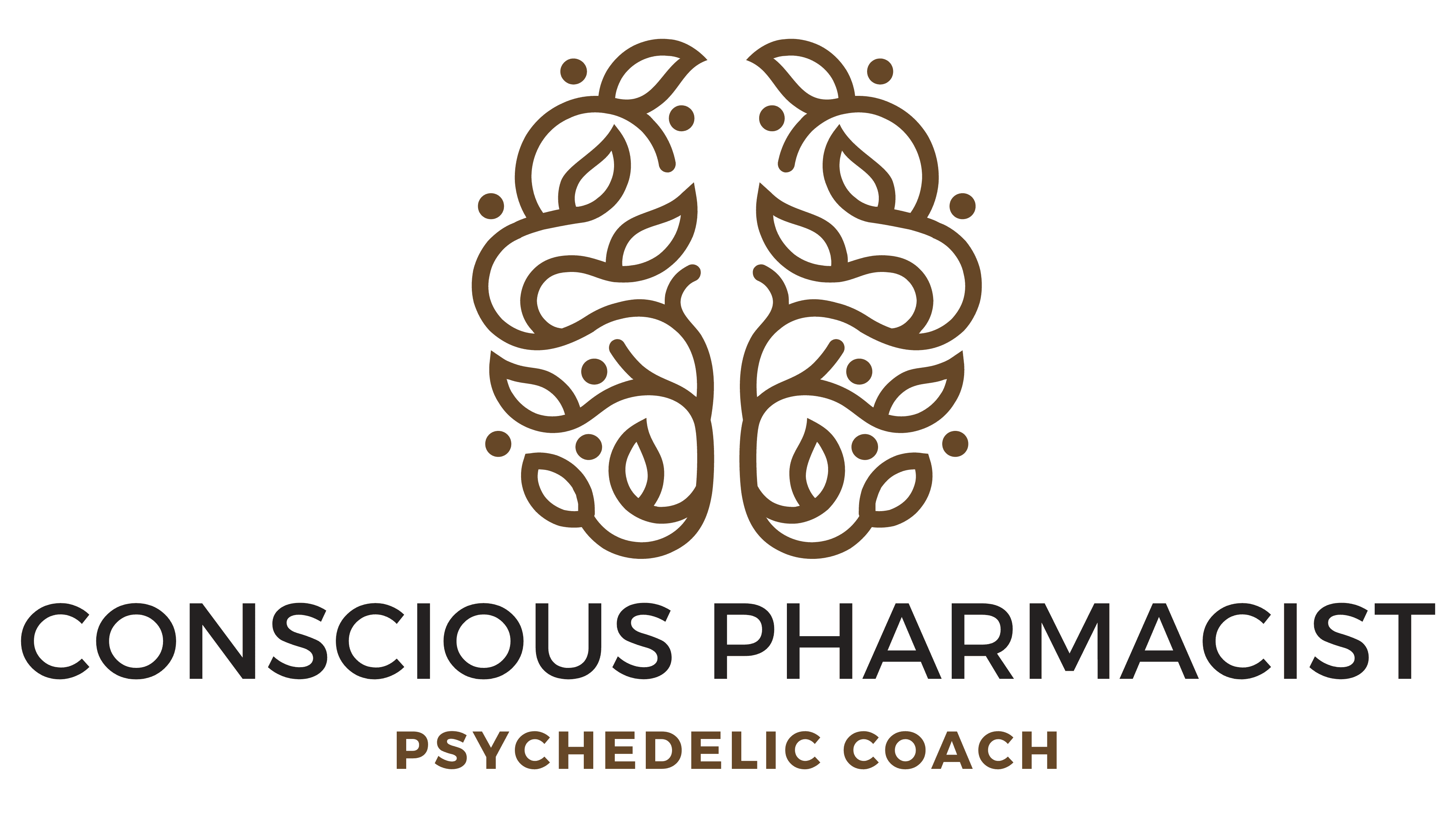Psilocybin, the natural active compound in certain hallucinogenic mushrooms, has shown very positive effects in treating various addictions and substance use disorders. Scientific research and numerous use cases at Conscious Pharmacist indicate the potential effectiveness of psilocybin therapy for opioid addiction, opioid replacement therapy, sex addiction, gambling addiction, cocaine addiction, methamphetamine use disorder, alcohol use …
Psilocybin, the natural active compound in certain hallucinogenic mushrooms, has shown very positive effects in treating various addictions and substance use disorders. Scientific research and numerous use cases at Conscious Pharmacist indicate the potential effectiveness of psilocybin therapy for opioid addiction, opioid replacement therapy, sex addiction, gambling addiction, cocaine addiction, methamphetamine use disorder, alcohol use disorder and tobacco use disorders.
For instance, studies have reported significant reductions in cravings and substance use following psilocybin-assisted therapy.
- Opioid Addiction: Researchers at Imperial College London have conducted a landmark trial to proof psilocybin combined with psychological support can help prevent relapse in people who have been addicted to opioids such as heroin. This study also showed the positive impact of psilocybin during the vulnerable post-detox phase when relapse risk is high.
- Opioid Replacement Therapies: The same trial also included individuals who have detoxed from opioid replacement therapies such as methadone or buprenorphine. The study gave evidence to the fact that psilocybin can aid in maintaining recovery and reducing cravings.
- Sex Addiction: Various studies have shown that psychedelics like psilocybin can improve sexual functioning and emotional connection. These effects might indirectly benefit individuals struggling with compulsive sexual behavior by enhancing self-awareness, emotional regulation, and interpersonal connection.
- Cocaine Addiction: Psilocybin therapy shows promise for cocaine addiction. Researchers at the University of Alabama at Birmingham (USA) found that psilocybin helped reduce relapse rates among individuals with cocaine use disorder. Psilocybin therapy may work by inducing profound psychological insights and altering brain connectivity to break addictive patterns. A pilot trial is underway to evaluate its efficacy further, combining psilocybin with structured psychological support.
- Gambling Addiction: Psilocybin is being studied as a treatment for gambling addiction in a world-first trial led by Imperial College London. This small-scale study combines psilocybin with talking therapy and brain imaging to explore its safety and therapeutic potential. Early research suggests that psilocybin’s ability to promote neural plasticity could help individuals break compulsive gambling behaviors
- Alcohol Use Disorder: Multiple studies have shown promising results for using psilocybin to treat alcohol addiction. In one randomized controlled trial, the percentage of heavy drinking days was significantly lower for participants receiving psilocybin compared to placebo. In numerous client cases, participants of psilocybin therapy experienced reduced alcohol cravings and consumption after psilocybin sessions.
- Tobacco Use Disorder: A scientific pilot study found that 80% of participants were abstinent from smoking at 26 weeks after psilocybin-assisted therapy, with 67% remaining abstinent at 52 weeks. In many client use cases individuals showed a significant decrease in smoking habits post-treatment.
- Methamphetamine Use Disorder: Researchers at the University of Wisconsin-Madison have successfully conducted a clinical trial to proof the effective use of psilocybin for decreasing methamphetamine misuse.
Observational studies have linked lifetime psilocybin use – based on microdosing – to significantly lower odds of meeting diagnostic criteria for Opioid Use Disorder (OUD), suggesting it may reduce dependency, cravings, and other symptoms associated with opioid addiction.
Read also: Study Shows Psilocybin Can Help People Drink Less Alcohol.
Effectiveness of Psilocybin vs. Traditional Treatments
- Reduction of Relapse Risk: Psilocybin combined with psychotherapy appears to be particularly effective in reducing relapse after detoxification. An ongoing study from Imperial College London is investigating whether this approach can reduce the high relapse rate (up to 75% within a year) in opioid addicts, similar to successful results in alcohol and tobacco addiction.
- Impact on Brain Mechanisms: Psilocybin potentially affects networks in the brain associated with addiction, such as the default mode network (DMN). This may help break destructive thought patterns, an advantage over drugs such as methadone or buprenorphine, which primarily suppress physical withdrawal and cravings.
- Symptom Relief: Observational studies show that lifelong psilocybin users have 30% lower odds of opioid addiction, especially for symptoms such as tolerance, emotional distress and social problems. Traditional medication (MOUD) reduces mortality rates by 50%, but does not address underlying psychological factors as much.
- Safety and Combination Treatments: Small scientific trials show that psilocybin can be safely combined with buprenorphine, without interactions or loss of effectiveness of the medication. This suggests that it can play a complementary role alongside existing therapies.
Psilocybin therapy provides a complementary mechanism by addressing psychological and neurological factors, while traditional treatments such as methadone reduce acute withdrawal and overdose risks. Although psilocybin cannot yet be recommended as standard treatment, several scientific studies and a large number of patient cases point to the unique benefits of psilocybin therapy, especially for relapse prevention and emotional recovery.
Read also: Microdosing Psilocybin: Improved Mental Health and Reduced Neurological Disorders.
Macrodosing Retreats
Macrodosing with psilocybin involves administering a full, therapeutic dose of psilocybin under professional supervision. These retreats offer a controlled environment where participants can undergo profound experiences aimed at addressing the root causes of their addictions. Such immersive sessions have been associated with lasting positive changes in behavior and mindset.
Read also: Interview with Dr. Sara Ahmadi: The Power of Psychedelic Retreats.
Microdosing Programs
Microdosing therapy based on psilocybin entails consuming sub-perceptual amounts of psilocybin regularly. While research is ongoing, some studies suggest that microdosing may enhance mood, creativity, and focus, potentially aiding in addiction recovery by promoting overall well-being.
Read also: Microdosing with Psilocybin: How Small Doses and Coaching Therapy Work Best.
Conscious Pharmacist’s Approach
At Conscious Pharmacist, we integrate both psilocybin macrodosing retreats and microdosing programs with professional coaching and medical guidance to provide holistic support for individuals battling addictions. Our macrodosing retreats offer immersive experiences designed to facilitate deep personal insights and transformative healing. Complementarily, our microdosing therapy programs aim to support daily well-being, helping to reinforce positive habits and mindsets essential for sustained recovery.
By combining these approaches, we strive to address the complexities of addiction, offering personalized pathways to healing and empowerment.
Read also: What is the Positive Impact of Conscious Pharmacist?
Read more:
- Psychedelic Therapy & Retreats: These Are The Most Asked Questions.
- The Best Psychedelic Assisted Therapy in Portugal.
- How Can Psychedelics Help with Tapering off Medication?
- Transforming Mental Health: Conscious Pharmacist Brings Science-Backed Psychedelic Therapy & Retreats.
Author: Editor
Sources: Conscious Pharmacist, Nature.com, Imperial College London, Frontiers in Psychiatry, Journal of Psychopharmacology, Wisconsin Madison School of Pharmacy, Sage Journals, Springer Nature Link, Taylor & Francis, UK Parliament POST, Time Magazine, Rehab.com, Health Review Board, Psychedelic Health







